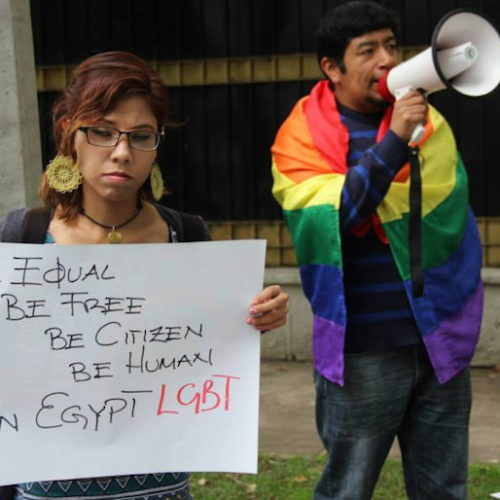Grindr has a major security flaw that can pinpoint a user’s exact location
Grindr has been exposed for having some major security flaws.
The flaws were first discovered by Trever Faden who first announced his genius regarding the means to know who has blocked you on Grindr using his site, C*ckblocked. The site allows users to enter their Grindr info and see who has blocked them on the app.
Once the info was entered, Faden however says he found another, even bigger security loophole.
He told NBC he was able to gain access to all sorts of other data not publicly available on user profiles, including unread messages, email addresses, deleted photos, and the location data of users, even those who opted not to publicly share their locations.
“One could, without too much difficulty or even a huge amount of technological skill, easily pinpoint a user’s exact location,” Faden says.
And by “exact location,” he means right down to the exact area of the building in which a user was located, which can be found in mere minutes by anyone with the know-how.
But it gets creepier.
NBC reports:
“Faden also discovered a separate security flaw related to location data that did not require users to log in to any third-party apps or websites with their Grindr credentials. Grindr requires users to send location data to its servers in order for the app to work. Some of that information is not encoded, meaning that passive observers of internet traffic — for instance, on a public Wi-Fi network watched over by a country’s government — can identify the location of anyone who opens the app.”
Yikes.
“There are a million reasons why you might not want someone to find your location through Grindr, and Grindr is dealing with that as a non-issue,” Cooper Quintin, a security researcher at the Electronic Frontier Foundation, tells NBC. “They’re putting people’s lives at risk by doing that.”
Faden says he has no intention of using the data his website has collected for nefarious purposes. He merely wants to use the experiment to raise awareness to some very serious security flaws on one of the most popular dating apps among gay men.
“The single weakest point in most security chains is often the human element,” he says. “Not backdoors, not weak authentication schemes — just people with malicious intent that know enough to dupe other people.”
About author
You might also like
Church Refuses To Bury Man After Discovering He Was Gay
A church canceled the funeral of a man hours before he was to be buried after finding out he was gay. The deceased Julion Evans, pictured above (left) with his
Egypt launches bid to ban atheism over fears it turns people gay
Egypt has announced a bid to ban atheism in the hopes that it will stop people from “turning” gay. The parliamentary commission on religion has said that plans to make
Kevin Hart Steps Down As Oscar Host, Finally Apologizes To LGBTQ Community, After Backlash Over His Oscar Gig
Ever since the Academy Award announced Kevin Hart as the host of the February 2019 ceremony, the internet has been on a persistent outrage over the choice. It’d been a










1 Comment
paradox
April 03, 22:41It is that fact that they are too porous enough to share statuses of their users that annoys me. Apparently, this was the REAL reason why they started this status crap couple of years back